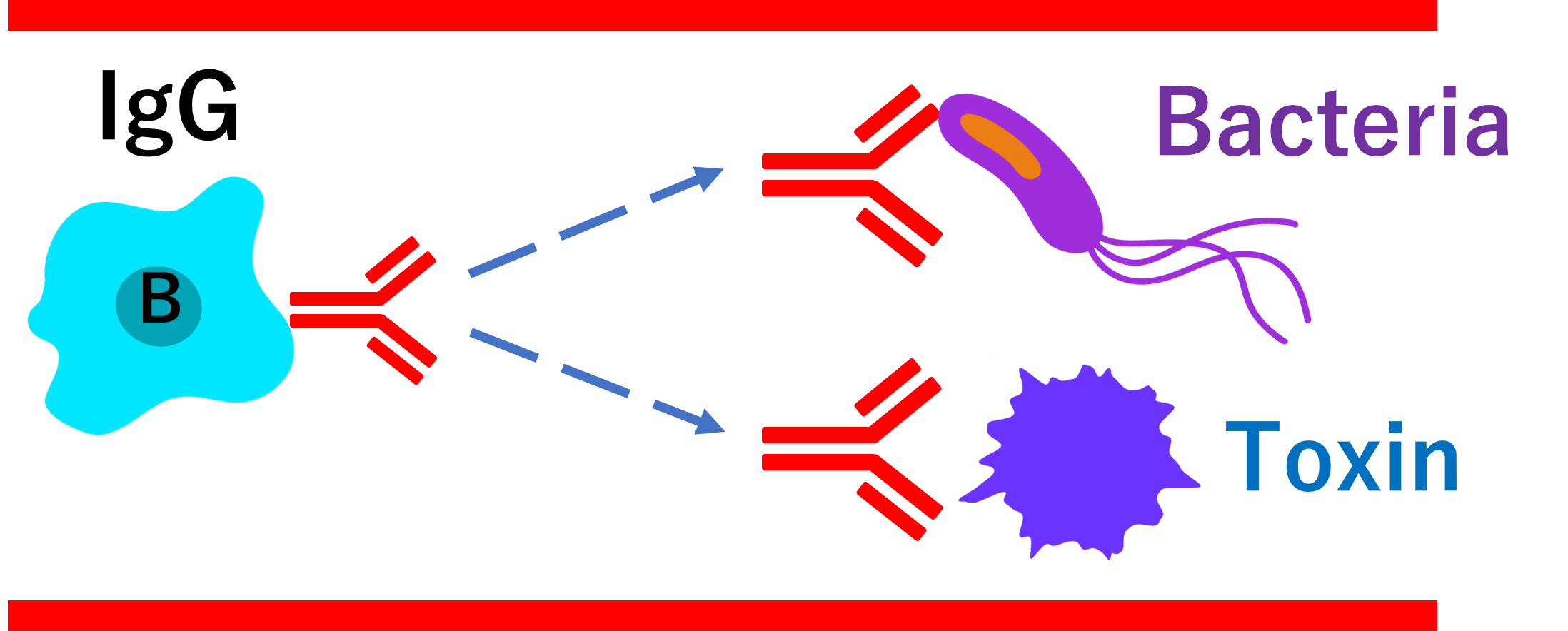Types of antibodies ~Development~
In this section, we will delve into the function of each type.
In this section, we will delve into the function of each type.
IgG is found in the blood. It binds to bacteria and toxins in the bloodstream and causes them to lose their function. It is also characterized by its ability to stay in the blood for a long time.

IgM is the first antibody produced when we are infected. It works in the early stages of infection, fighting the infection until before IgG is produced. Since it has five molecules bound together, it is able to bind foreign substances more quickly and effectively.

IgA is found in the mucous membranes of the intestinal tract and trachea, and prevents infection from the eyes and nose. In the blood, IgA is a single Y-linked molecule, but in mucous membranes, it is two Y-linked molecules.
The number of IgD is small, and its function is still unknown.
IgE binds to mast cells in mucous membranes and connective tissues to cause allergic reactions. This antibody is also the cause of asthma and hay fever, which we often hear about.
There are five types of antibodies, each with different properties, some of which have yet to be elucidated, so there is still a lot of room for research.

この作品はクリエイティブ・コモンズ 表示 - 非営利 - 継承 4.0 国際 ライセンスの下に提供されています。